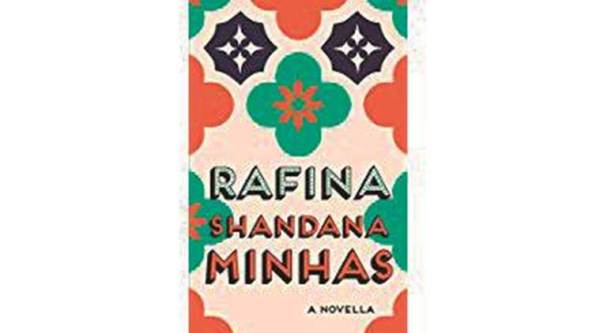Paper Princess
Shandana Minhas’s novella, Rafina, falls flat because of its lack of pace and the singular unlikeability of its lead

Written by Shandana Minhas, the book opens with Rafina, a young woman who lives with her mother Naz and younger brother Kumwar in Karachi.
Title: Rafina
Author: Shandana Minhas
Publisher: Picador India
Pages: 163
Price: Rs 450
Author: Shandana Minhas
Publisher: Picador India
Pages: 163
Price: Rs 450
There are many books that promise tales of a starry-eyed protagonist embarking on a journey filled with encounters and (mis)adventures on the road to achieving his or her dreams. These books can leave readers feeling anything from inspired to happy, or, perhaps, just mildly satisfied. Rafina, on the other hand, seems determined to leave them questioning the very purpose of its existence — and not in a fun, challenging way.
Written by Shandana Minhas, the book opens with Rafina, a young woman who lives with her mother Naz and younger brother Kumwar in Karachi. She is born into poverty and stares at a billboard near her house, dreaming dreams of becoming famous, of being noticed, and, of being rich. She is determined to do whatever it takes and surmount whatever obstacle is placed in her path in her quest to reach her goal. So far, so cliched.
Then, the book finds itself in choppy waters. Rafina is fundamentally unlikeable as a character, which in itself is a difficult feat to achieve, given our almost instinctive propensity to root for the underdog. From the very first page to the very last, she is vain, acerbic in thought, and often downright malicious in her observations. Few characters throughout the book escape her scathing denigrations, be it Naz (“Rafina hated her weakness and her mute acceptance”), her aunt Rosie (“you aren’t even allowed in the main salon… because you look so ugly in that outfit”) or the many clients she encounters while working as Rosie’s apprentice (ordinary, unfit, too fair, too dark).
This, in itself, need not have been a dealbreaker, of course. Not all protagonists need to be fundamentally or even superficially likeable — and why would Rafina grow to be such, in a society where few things work in her favour? The real issue is that for all its seeming deliberateness, the construction of this character seems to lead absolutely nowhere.
Is the narrative meant to be of an adventure? For that, there would need to be an excellent sense of pacing, which this book lacks. The book’s tone is uniformly lethargic. Furthermore, the narrative takes all the usually operative parts of a story and inverts it, allowing the space between noteworthy events to dominate it. As a result, even Rafina’s attainment of her dream seems almost like an afterthought, crammed in after many pages of internal monologue.
Is it, then, slice of life? Unlikely, as that genre would require engaging characters built painstakingly over the course of the story, while in this book, even Rafina feels disjointed, to say nothing of the peripheral characters. For most of the book, she stays true to her contempt of nearly everything and everyone around her. However, there are two or three moments in which Rafina professes to loving them, or feels shame at letting them down, or, in acknowledging their worth as human beings. These moments are largely built on sand, with precious little prior to or after them to justify their presence. Another missed opportunity lies with the cast in the salon where Rafina eventually finds work. Be it her boss, Nausheen Ali, or Rosie’s friend Nawal, the staff of the salon — what little we see of them, at least — come across with great potential. This, however, is never realised. The narrative seems determined to fully embody Rafina’s own self-centeredness, to its own detriment.
Perhaps, the book is meant to be satire, then. The way the narrative seems to include so many well-worn tropes certainly supports this theory. However, satire generally requires incisive insights and wit, both of which turn out to be rather sparse. In an interview, Minhas, an award-winning writer, revealed that Rafina was written in 2004 and kept “in cold storage” for many years. When she returned to the manuscript years later, Minhas reportedly wanted to remain true to the writer she was then, rather than approaching it from 2018. This may explain, at least partially, why the narrative as a whole comes across as partially cooked. The sentiment must be respected, but does little to help readers.
Ultimately, a review of this book may be summed up as a response to the very start of Rafina, which goes thus: “It’s the name, Naz, it’s the name. Who told you to call her Rafina? Sounds like a dancer in the movies. After Helen…Rafina! No wonder she’s such a dramaybaaz.” As the last page of the novella is turned, the appropriate response, perhaps, is to look at those first few lines and say: “Drama? What drama?”






















No hay comentarios:
Publicar un comentario